Feature: Your Money 2025, Bounce Back!
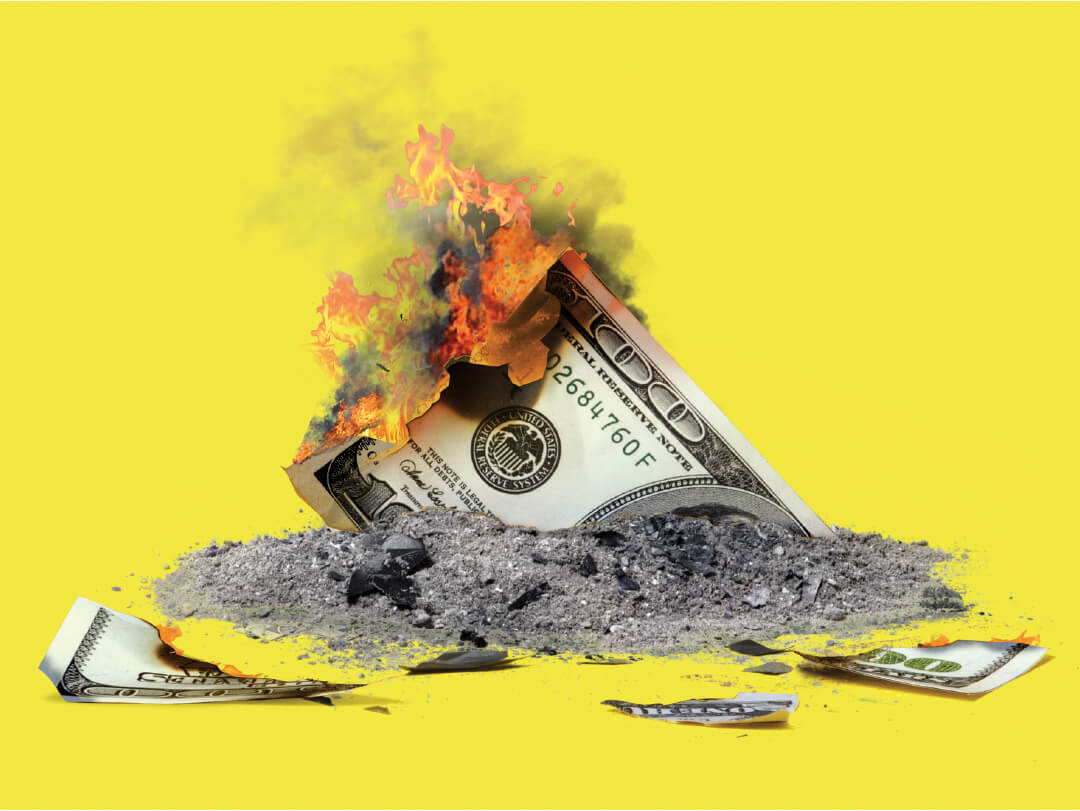
SHOCK! BETRAYAL! DISASTER!
THREE TRUE STORIES OF RESILIENCE IN FINANCIAL CRISES
ILLUSTRATIONS BY DOUG CHAKYA

NO RETIREMENT FOR ME
I SAVED AND PLANNED FOR A LONG ONE. THEN I HEARD FROM MY DOCTOR
BY JONATHAN CLEMENTS
THIS WON’T come as a big surprise: Dying makes you look at the world in a different way—the world of money included.
Among friends and family, I’m known for hard work and self-discipline. I spent almost two decades at The Wall Street Journal, churning out personal finance columns every week. I saved so diligently that I could have retired at age 51, but instead opted to write books and launch a personal finance website. My self-control extends to exercise: I’ve run or bicycled pretty much every day since 1995.
What was my reward for this life of industry, frugality and clean living? In May 2024, at age 61, I got an out-of-the-blue diagnosis of cancer, the result of a defective gene. The cancer had metastasized from my lung to my chest, liver and brain. My oncologist said I might have a year to live. I’m hoping for a tad longer because my body has responded well to treatment. Still, it’s only a matter of time before cancer gets the upper hand.
In the meantime, I find myself wandering through life with a different mindset from almost everybody else. How so? Here are 19 ways that my thinking and my finances have been transformed by my diagnosis.
1. I spent nearly my entire adult life saving like crazy so I could retire in comfort—and yet, faced with my terminal illness, I have no plans to retire. Instead, I want to keep doing what I’ve been doing for years: getting up early, making coffee, exercising, writing and editing, napping after lunch, taking an afternoon walk, enjoying an evening glass of wine. These are the things that bring me pleasure each day, and I have no desire to stop now.
2. Do I regret my decades of frugality, including previously living for 20 years in a modest house I never much liked? Far from it. The money I saved won’t go toward my retirement, but it still bought me a lot of happiness—because it allowed me to avoid financial worries for much of my adult life.
3. I could spend with reckless abandon now, but my old frugality persists. My partner, Elaine, and I had been living together for four years and were already engaged when I got my diagnosis. We married four days later, partly because she won’t qualify for Social Security survivor benefits unless I’m still alive nine months after our wedding. Since then, we’ve taken a few special trips, and we have a few more planned. But I’ll only open up my wallet so far. You won’t find me paying $5,000 to fly business class to Europe.
4. Never an enthusiastic shopper, I’m now even less inclined to buy new things. Last fall, Elaine insisted I purchase new shoes for my son’s December 2024 wedding. I wear those shoes whenever I get the chance—because it’s the only way I could justify the cost.
5. Gifting has become a top financial goal. One reason I’m not spending like crazy: I want to make sure I bequeath a healthy sum to Elaine and my two children, now in their 30s, from my previous marriage. I also made some financial gifts right away, including writing large checks to my kids and funding 529 college savings plans for my two grandsons.
6. I’ve long invested aggressively, keeping 80 percent or more of my portfolio in stock-index funds. Now that I know it’s likely I won’t live more than another year or two, I’m even more aggressive. Why? I’m no longer investing for my retirement. Instead, I’m investing for my heirs, and their time horizon is far longer than mine.
7. Because old age is no longer in the cards, all kinds of issues are off the table. I don’t have to fret over future long-term care costs, or whether to choose original Medicare or Medicare Advantage, or how to minimize my retirement tax bill. Instead, my top priority is making sure everything is in good shape for my heirs.
8. As of my 62nd birthday in January of this year, I could have applied for Social Security. But I won’t. My goal is to get Elaine a healthy stream of Social Security benefits. After much research—including a consultation with the developer of opensocialsecurity.com, a free Social Security strategy calculator—I figured out that in our situation, I should skip claiming. Instead, Elaine will claim survivor benefits based on my earnings record when I die. Once she turns 70, she’ll swap to a benefit based on her own record.
9. I thought my financial affairs were well organized. I was kidding myself. I’ve spent months shredding old tax returns, ripping up investment statements and organizing what remains. I fear that if I don’t throw out unneeded paperwork, my family will think it’s important—and I will have bequeathed them unnecessary confusion.
10. There’s always more to throw away. I’ve moved four times since 2011, shedding possessions on each occasion. Yet I keep finding more things to toss or give away. My 13 years of downsizing have taught me to be ruthless. The fact is, there’s nothing that I’ve unloaded over the past 13 years that I wish I could have back.
11. For years, I’ve been carting around a box of old mail: notes from old girlfriends, Christmas cards from 1986, letters I got while at college. Mixed in there was some really bad poetry I wrote. Did I carefully review everything in the box? Hardly. I tore up most items after a quick glance and added them to the recycling bin. Am I glad my kids will never see all this stuff? You bet.
12. My finances were pretty simple, but I’ve been simplifying them even more. I’ve closed two of my four credit cards, liquidated a small IRA I inherited from my father, and folded a solo Roth 401(k) into my Roth IRA. All this is a whole lot easier for me to do now than it will be after my death, when family members will have to produce death certificates and prove they have the authority to act.
13. I’ve added Elaine to my various insurance policies and made her the joint account holder on my two checking accounts. One of those checking accounts is debited for all utilities—gas, water, electricity, internet, cellphones—so it’ll be easy for her to take over the household finances.
14. Two days after I was diagnosed with cancer, I sat down with Elaine and my children to walk them through my estate plan. I quickly realized one conversation wouldn’t be enough. Stuff that was second nature to a financial nerd like me was baffling to them—things like the difference between traditional and Roth IRAs and what a “step-up in cost basis” means. Since then, I’ve fielded countless questions from Elaine and my kids.
15. Even as I tidy up my affairs, I’m also getting the house fixed up, including taking on a two-month bathroom remodeling project. I’ve learned that this is an affliction that often hits men confronting their mortality: They want to make sure all is in good order for their spouse or partner.
16. Time has always been more valuable than money, and never more so than right now. I want to devote each day to the things that I really care about, while minimizing annoyances. What if contractors or customer service reps are being unresponsive? If necessary, I’ll play the C card, telling them I don’t have long to live. Yes, it’s surprisingly effective.
17. As news of my cancer has spread, I’ve been inundated with countless messages. If I read every book about cancer that’s been recommended to me or agreed to meet with everybody who wanted to visit, I’d have no time for the things that matter to me. The good news: When a dying man says “No,” people tend to listen.
18. I still want to make a difference in the lives of others. That’s why I continue to write and edit every day. In return, I end each day feeling fulfilled and with that pleasant sense of progress that makes me happy.
19. I refuse to feel angry about my bad luck or despondent over the years I’ll never enjoy. Instead, I’m determined to make the most of each day. I’ve long thought happiness has three key ingredients: a sense of financial security, time with family and friends, and doing work I love. My diagnosis has made me even more focused on those three things.
Every few months, I have a brain MRI and a body scan to see whether the cancer has spread. Every three weeks, I get blood drawn, which may offer a warning sign of trouble. Someday—maybe next month, maybe next year—the results won’t be in my favor.
Until then, Elaine and I will continue to make plans for the four or five months that lie ahead, but no more than that. It’s the frugality thing again. We can cancel hotel rooms and rental cars without penalty. But changing airline tickets and cruises can be costly. And I sure don’t want to be confronted by both death and cancellation fees.
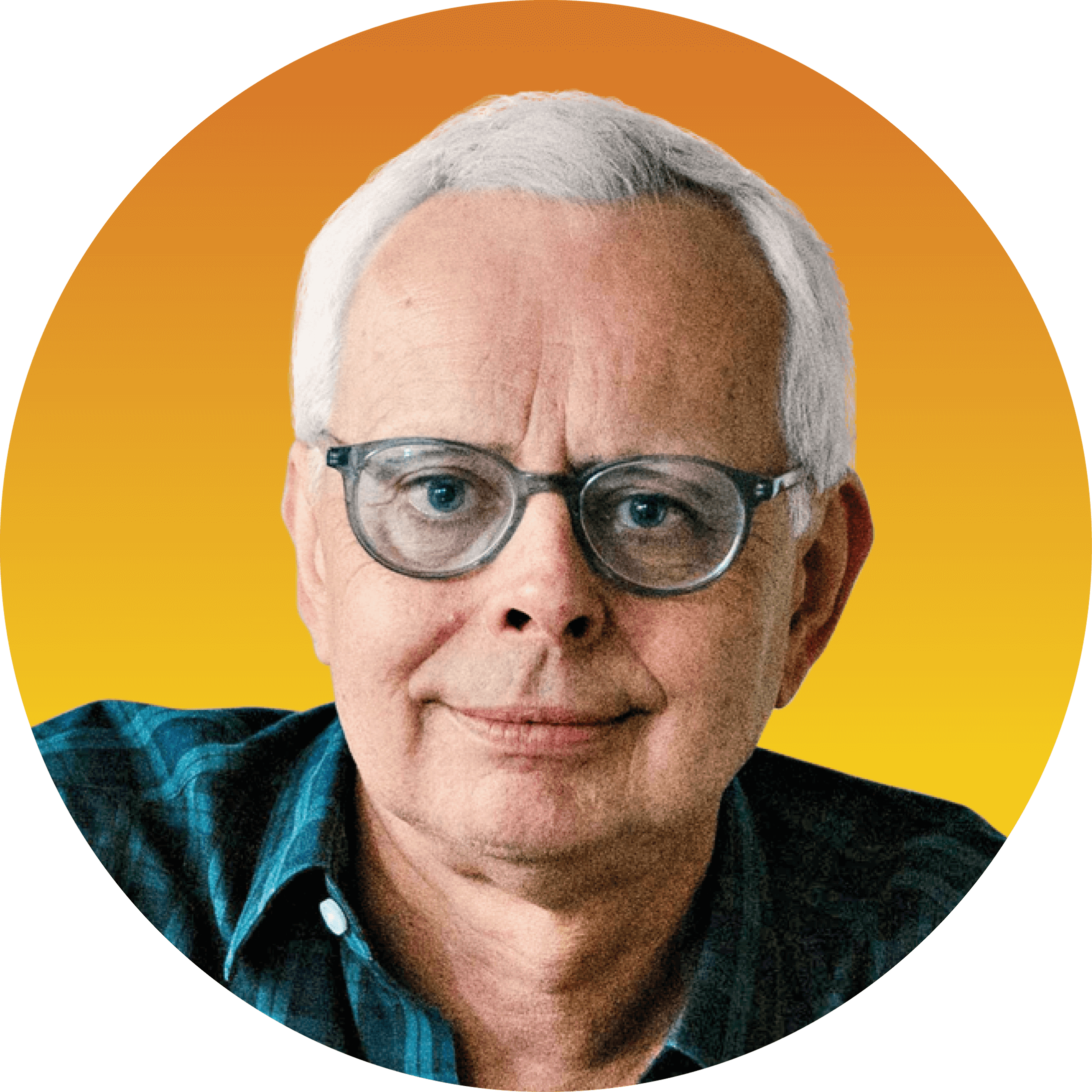
“I THOUGHT MY FINANCIAL AFFAIRS WERE WELL ORGANIZED. I WAS KIDDING MYSELF.”
Jonathan Clements is the founder of HumbleDollar.com and the former personal finance columnist for The Wall Street Journal.

TILL DEBT DO US PART
A $32,000 ‘MISTAKE’ WAS ONLY THE BEGINNING
BY JEAN CHATZKY
FOR MARY Anderson, the first sign of trouble was a background check. Working at US Bank in Minnesota in 2015, she had access to federal government accounts. So it was important to verify she didn’t have any financial problems in her life that she might try to solve with other people’s money. But Mary had nothing to hide.
To her surprise, however, the examiners told her they’d found $32,000 in bad credit card debt. Most of it was on a card Mary held jointly with her husband—a card she thought had been closed years before.
She went home and told David, her husband of 24 years, what had happened. David, a sales manager at an auto dealer, seemed just as confused as she was. It has to be a mistake, he insisted. “We have a common last name,” she reasoned. But the bank’s investigators assured her there was no error. They had the right Mary Anderson. Each day she went to work “scared to death” that she was going to be fired for not revealing this supposed debt. Each night her husband shrugged his shoulders.
Finally, about five days later, David caved. Six years earlier, the couple had added a new kitchen and family room to their starter home. Costs had gotten out of control, he told her. He’d put the expenses on joint credit cards but didn’t pay the balances.
Once Mary explained the situation to her employer, she was able to keep her job. But the experience was humiliating: A woman responsible for guarding against financial hanky-panky at the office was oblivious to a huge money problem at home.
“For many years he was making more money than I was, so it seemed to make sense for him to handle the money and the bills,” Mary says. Unlike her, he was able to come home during the day and intercept any bills in the mail. She’d occasionally see odd notices about their mortgage and unpaid bills, but he’d tell her it was all taken care of. “I trusted him to handle the finances,” she says.
A few months later, she tried to withdraw money from a savings account she’d long held at a local bank. Instead of the $8,000 she expected to find, the account was empty. David had withdrawn the money. She doesn’t remember his response to her questions about where the money had gone. “It was tough to pull information out of him,” she says.
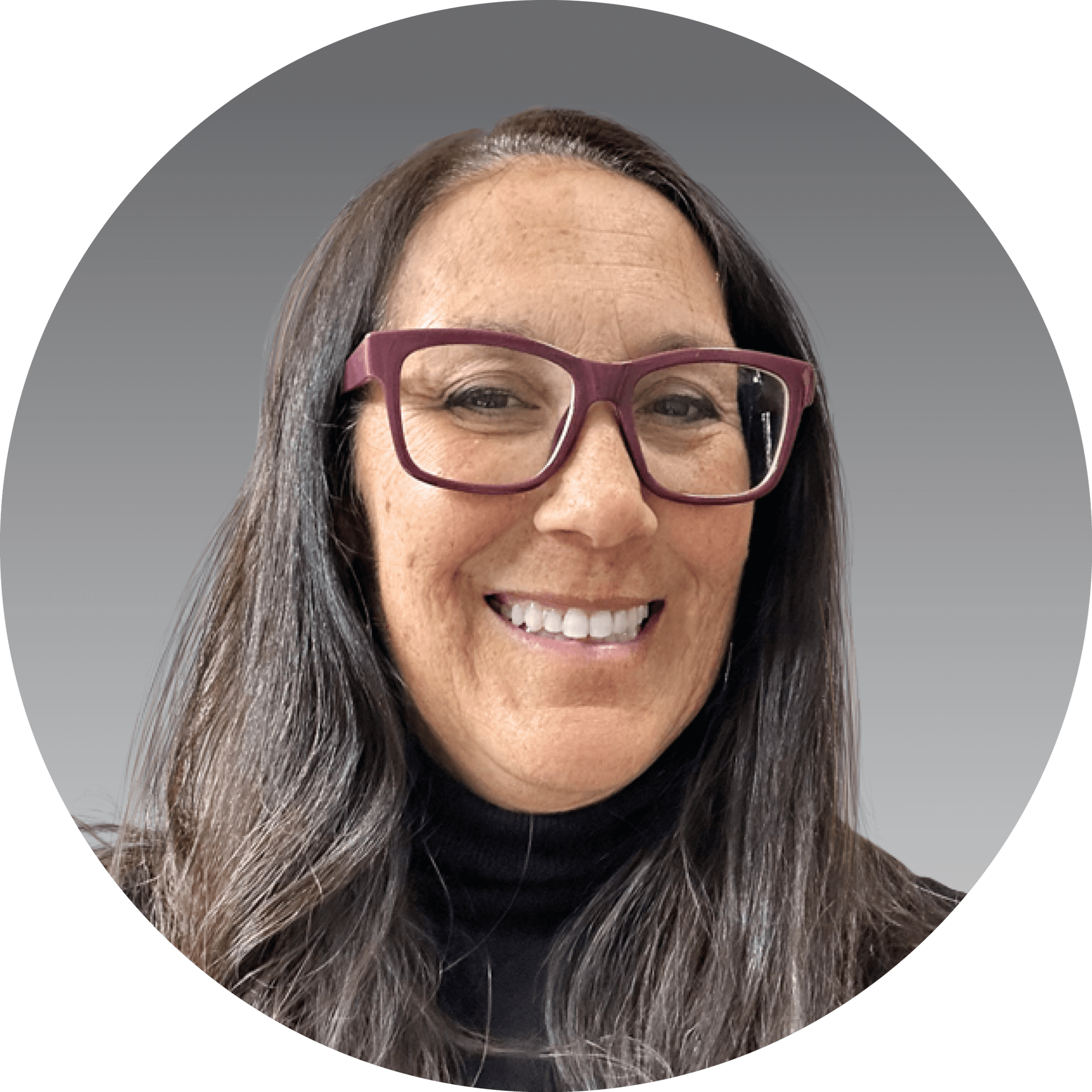
“IF YOU’RE A MARRIED COUPLE, YOU BOTH NEED TO KNOW WHAT’S GOING ON.”
The financial dominoes continued to fall. In the summer of 2019, she received a notice that the state was garnishing her wages. “I called [David] and asked him about it. He said, ‘It must be a mistake.’ ” In an empty hallway in her office, she huddled in a corner and sobbed.
After Minnesota’s department of revenue confirmed she owed unpaid taxes, Mary, suspecting more bad news, called the IRS. A customer service agent told her that she and David owed $40,000 in back taxes. “How is this possible?” she asked. “We don’t make that much money.”
“Honey,” the rep answered, “someone is lying to you.” David, it turned out, had cashed in his retirement account and an old one of hers, worth $24,000. He had failed to report some of his income. And he’d hidden years of IRS correspondence demanding payment and penalties.
Where was the money going? “We got into a situation where we were spending more than we had on both sides,” David says. “To maintain it, and not draw attention, I made some unwise choices.” As for the timeline of events that Mary recalls, he says, “I have nothing that I’ll dispute. It’s mostly true.” But, he adds, “It’s deeper than just money. There were mistakes. I made some. She made some. We should have had better communication.”
Mary, who was 49 when she learned of all these secret debts, couldn’t bring herself to leave David. One stumbling block was that she didn’t think she could afford it. Another was religion. “I was raised Lutheran,” she says. “To me, divorce was wrong.”
Instead, they agreed to sell their house. The home equity they’d accumulated was enough to pay their back taxes. They’d start all over with a clean slate. And this time, she’d pay meticulous attention to the money. They separated their bank accounts and credit cards. And she started regularly pulling her credit report to make sure nothing was amiss.
Yet living in their rented townhouse, Mary was still miserable—married to a man she no longer trusted. She had always been a runner. But when her runs didn’t ease her stress, she started training for an Ironman triathlon—a race comprising a 2.4 mile swim, a 112-mile bike ride, then a full 26.2-mile marathon. “People would say to me, ‘Training takes so much time. Don’t you want your time back?’ ” Mary remembers. “But it took my mind off all the other things in my life that weren’t going right.”
Her debut Ironman, in Madison, Wisconsin, in September 2022, ended poorly. Near the end of the cycling segment, heavy rain and a hilly course made braking dangerous. “I didn’t feel safe on the course,” she said, “so I stopped.” Two weeks later, she signed onto the IRS website and saw that she and David were another $16,000 in arrears—this debt dating back to 2019. She picked up the phone and called an attorney. “I can’t live like this anymore,” she said.
The divorce was finalized a few months later, but the couple continued to live together until May 2023, when their lease was up. Mary moved into a studio apartment that she describes as “not New York-small, but small enough.” That September, she suited up once again for the Ironman in Madison. Sixteen hours and 24 minutes later, she crossed the finish line. Though she was near the back of the pack, completing the Ironman felt like victory: “Everything I overcame financially. Everything I had gone through to get there. It was the best thing, ever.”
Mary came away from her divorce with about $200,000 in a 401(k) and a $150,000 inheritance from her late parents, held in accounts that, as things had turned “messy,” she had taken precautions to keep out of David’s reach. Now 58, she doesn’t see retirement in the cards anytime soon. Having left US Bank in 2020, she now has a customer service job at an equipment finance company and supplements her income with work for a women’s boutique and a grocery delivery service. She lives modestly, driving a 2018 Buick wagon she bought with cash. Still, she says, it’s a vast improvement over where she was just two years ago. “I don’t have the financial unknowns hanging over my head,” she says. “I know where my money is coming and going.”
And what did she learn? Lesson one: “Don’t trust anyone with your finances,” she says. “You have to stay on top of them yourself.” Lesson two: “If you’re a married couple, you both need to know what’s going on,” she says. “If one says, ‘Everything’s fine,’ that’s not OK. If your gut feeling says something is off, it’s off.” And finally, lesson three: “I’m stronger than I thought I was,” she says. “It was a wild ride.”
Jean Chatzky, a longtime financial journalist and CEO of HerMoney, writes the “Chatzky to the Rescue” column for AARP The Magazine.
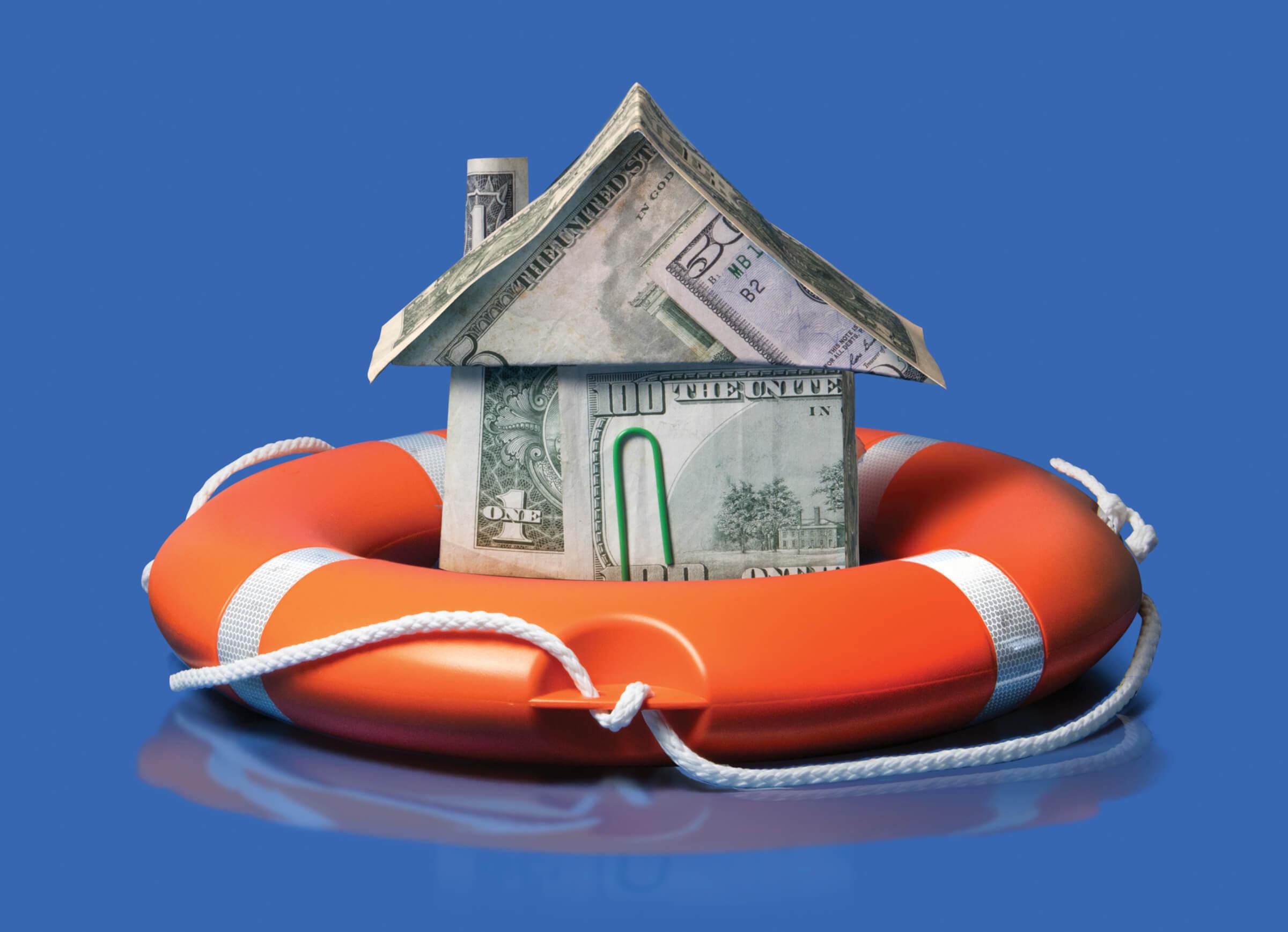
SWEPT AWAY
HURRICANE HELENE TOOK HIS POSSESSIONS BUT LEFT HIM A LIFELINE
BY SARA MURPHY
CHRISTOPHER Fielden is no stranger to floods. Over the 18 years he’s lived in Swannanoa, North Carolina, 10 miles east of Asheville, he estimates that the Swannanoa River has overflowed its banks and flooded part of his property maybe 30 times. But the buildings at the farther end had remained untouched.
As Hurricane Helene approached last fall, however, Fielden, 53, took no chances. He placed straw bales in a makeshift berm around his one-story house, and he rented a pump to remove any water that might leak through.
It wasn’t enough. By 6 a.m. on Friday, September 27, water was entering the house. Wearing a headlamp in the darkness, Fielden grabbed his computer and backpack, then drove his 2004 Toyota truck to safety.
He returned the next day to survey the damage. The water had risen 8 feet in the two-bedroom home. The greenhouses and the barn on the property were destroyed. Also ruined were two other dwellings—a mobile home and an attachment to the barn—which he had been renting to current and past students from nearby Warren Wilson College. (His tenants had evacuated before the storm hit.) Every inch of land was covered in mud and debris.
“It looks like a bomb went off,” Fielden says.
Later he drove to the Center for Conscious Living and Dying (CCLD), a community-supported home for end-of-life care where he had been volunteering. Three other volunteers and a resident were sitting outside, enjoying the now-sunny weather. “I said, ‘It’s all gone. I lost it all,’ and I just collapsed and started crying,” Fielden recalls. The resident, seated in his wheelchair, held Fielden’s hand and sang. “I looked up at him,” says Fielden, “and I said, ‘Who’s helping who here?’ ”
Living Off the Land
In 2006, Fielden and his then-partner had bought five acres, hoping to live sustainably off the land. They built their house, then launched Red Wing Farm, selling plant starts and produce locally. Later, they added dairy goats and chickens. Net income reached $28,000 in a good year. So both he and his partner worked other jobs as well: she for nonprofits, he as an architectural draftsman.
In 2016, they bought the adjacent six acres along the river, plus the mobile home on the land. But several years later, after Fielden had suffered two medical setbacks, he decided sustainable farming was neither financially nor physically feasible for him. Red Wing Farm closed, and Fielden started a business consulting on ADA-compliant accessibility.
By 2023, Fielden had split from his partner and had bought out her share of their properties. At the time Helene arrived, he was making monthly mortgage payments of nearly $4,000. Along with his consulting income, he was collecting $2,700 in monthly rent.
“I had a financial plan for the rest of my life, including retirement,” says Fielden. The mortgages would be paid off around the time he turned 65, and the rental income would support him as he aged. “Now all that’s gone.”
Money In, Money Out
Regaining his composure at the CCLD, Fielden started looking for ways to help out. With power still out, residents had to be evacuated and generators connected. The CCLD directors invited him to move into one of the rooms reserved for families. “That’s been a beautiful gift,” he says.
But what would become of his home? Never believing it was in danger, he hadn’t covered it with flood insurance. Luckily, by the Monday after the storm, he had cellphone service and was able to connect with the Federal Emergency Management Agency (FEMA) for aid. He soon received a $53,000 check through the disaster assistance program, earmarked mostly for home repair.
And he did have flood insurance on the property with the mobile home, since it had been required for getting a mortgage. With the money he received, he paid off the balance and now owns that tract outright. He still has a mortgage on the five acres where the remains of the house sit, and in December resumed making the $1,750 monthly payment on that property.
Fielden restarted his consulting work about two weeks after the storm. “In the short term, right now, I am able to pay my bills,” he says.

“IF I DON’T HAVE PEOPLE, IT DOESN’T MATTER HOW MUCH MONEY I HAVE.”
The Power of Community
Just before Thanksgiving, Fielden moved out of CCLD and into a furnished apartment in East Asheville owned by a fellow volunteer.
Asked to share any financial lessons he has learned in the aftermath of the hurricane, Fielden offers some obvious ones: Don’t buy property in a floodplain. Do buy flood insurance.
But the most valuable lesson, he says, isn’t financial. “What’s most important for getting through a moment like this is community, family, support, love, and having close relationships with people,” he says. “If anything comes out of this experience, personally for me, as well as the collective experience in Asheville, let this be a wake-up call for people: If you don’t have the level of community that you want and need in your life, prioritize that. Because if I don’t have people, it doesn’t matter how much money I have.”
Sara Murphy is a freelance writer based in Asheville, North Carolina.
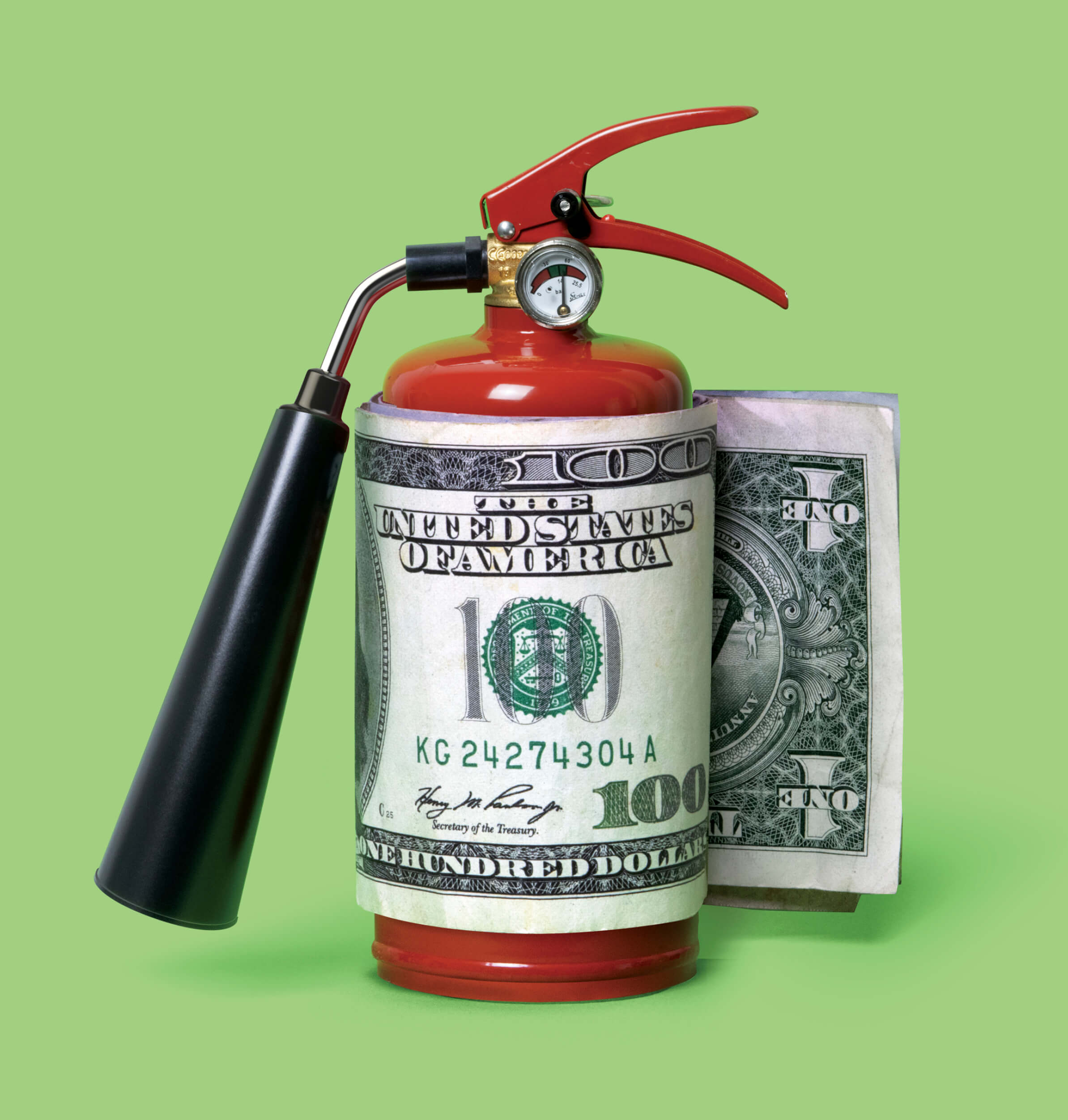
RESCUING YOUR FINANCES AFTER A CRISIS
4 tips to help you recover from the damage done to your money when your life has been turned upside down
BY ELISE CEYRAL
Focus on the now. After a disaster, take an hour to write down everything that’s making you anxious, advises Megan McCoy, an assistant professor of personal financial planning at Kansas State University. Once that’s done, start taking care of things you have control over. After a hurricane, for example, document damage and notify your insurer. But don’t waste your energy imagining catastrophic aftereffects off in the future, she says.
Be on guard against scams. Criminals know how to use our emotions against us. Because of that, our heightened reactions to catastrophic events—panic or regret, perhaps—make us an obvious target. After natural disasters, for example, scammers posing as contractors may rush you into paying high fees for bogus or poor-quality repairs. If you’ve lost money to a fraud, another criminal might pose as someone from the government who will help you get it back. “We always encourage people not to be pressured to act fast,” says Jessica Prell, adviser to AARP’s fraud prevention programs. “Always take time to do your research.”
Make a long-term plan. Once you’ve taken care of basic needs such as food and shelter, start developing a sustainable budget, recommends Jordan Naffa, director of financial planning at Arista Wealth Management in Las Vegas. If necessary, reach out to creditors and try to negotiate your obligations based on your changed financial circumstances.
Practice self-care. Friends, family and professionals can help you deal with the damage to your mental health that financial emergencies can inflict. Reaching out to a support group might be helpful, Naffa says. Lauren Lindsay, a financial planner at Beacon Financial Planning in Houston—many of whose clients have endured multiple hurricanes—says a friend who is not going through the same trauma might give you a helpful perspective.
Caroline Gutman/New York Times/Redux Pictures; Courtesy Mary Anderson; Courtesy Christopher Fielden